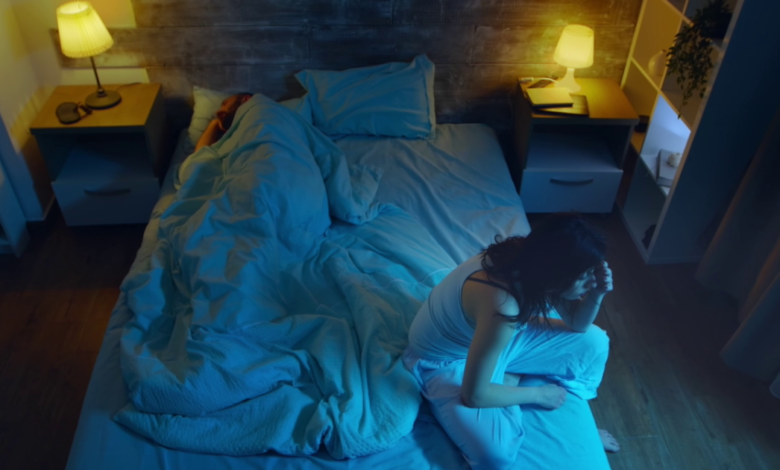
CHICAGO, Ill. — We know that not getting enough sleep is bad for your health. But a new study finds that a subset of those who have trouble sleeping have a much higher risk of dying because of it. The nine-year study could be a wake-up call for people not taking their slumber seriously enough.
It’s a simple question: "Do you have trouble falling asleep at night or do you wake up in the middle of the night?" The answer, according to new research, could help indicate your risk of dying.
“We were really interested to see whether people who reported having trouble sleeping, trouble falling asleep, or waking up a lot during the night were more likely to die,” said Dr. Kristen Knutson, a Northwestern University neurology professor specializing in sleep medicine and corresponding author of the new study.
“This is a large study in the U.K., about half a million people, where they collected a lot of information at the beginning and they've been following them over time, particularly for their deaths by collecting death certificates,” said Knutson.
In collaboration with the University of Surrey, researchers found that over a nine-year period, sleep issues could subtract years from your life expectancy.
“They were about 13% more likely to die than people who did not have trouble falling or staying asleep,” said Knutson.
That finding was even more pronounced among people with diabetes. Participants were 87% more likely to die from any cause, such as car accidents or heart attack during the study follow-up period, compared to people without diabetes or sleep disturbances.
“There's difficulty sleeping, being comfortable, symptoms-related or diabetes can disturb their sleep. So, there's a lot of reasons why someone with diabetes. Might have sleep disturbances,” said Knutson.
Researchers believe it is the first study to combine insomnia and diabetes to look at mortality risk, a serious issue in the U.S.
According to the National Institutes of Health and the Centers for Disease Control and Prevention, more than 30 million Americans have diabetes, the seventh leading cause of death. It’s estimated that of those with type 2 diabetes, half struggle with sleep problems due to unstable sugar levels during the night.
“There are a lot of symptoms people pay close attention to, like pain, for example,” said Knutson. “We just want to add sleep to that list of symptoms that are taken seriously, and you report and discuss with your doctor to understand what's going on.”
It’s a potentially deadly combination that, if addressed correctly, could add years to your life.









